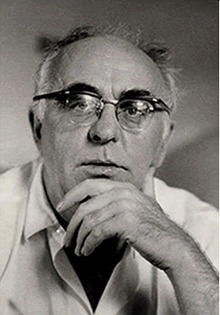A Quote by Rita Dove
If I begin writing a poem that means I'm intrigued in some way by whatever it's about and that if I'm not trying to find something new and pushing the envelope in the poem I can't expect my reader to be particularly excited about it either.
Related Quotes
I think that poetry is an act of celebration, that anytime you're writing a poem, it means that you're celebrating something, even if it's a sad poem, if it's an angry poem, a political poem or anything at all. The fact that you're taking the time and energy to pick up this thing and hold it to the light, and say, "Let's take some time to consider this," means that you've deemed it worthy enough to spend time on - which, in my opinion, is celebrating.
The poem is not, as someone put it, deflective of entry. But the real question is, 'What happens to the reader once he or she gets inside the poem?' That's the real question for me, is getting the reader into the poem and then taking the reader somewhere, because I think of poetry as a kind of form of travel writing.
There's something immediate about the experience of reading a poem - whether it's the music or some other element of it - that just seems to access another part of the brain. You know, Charles Olson talks about this transfer of energy that happens between the writer and the reader of the poem. I guess there's something essential to me about acknowledging upfront the immensity of it - the difficulty of it - and even allowing that to be the subject.
Introduction To Poetry I ask them to take a poem and hold it up to the light like a color slide or press an ear against its hive. I say drop a mouse into a poem and watch him probe his way out, or walk inside the poem's room and feel the walls for a light switch. I want them to waterski across the surface of a poem waving at the author's name on the shore. But all they want to do is tie the poem to a chair with rope and torture a confession out of it. They begin beating it with a hose to find out what it really means.
It was early on in 1965 when I wrote some of my first poems. I sent a poem to 'Harper's' magazine because they paid a dollar a line. I had an eighteen-line poem, and just as I was putting it into the envelope, I stopped and decided to make it a thirty-six-line poem. It seemed like the poem came back the next day: no letter, nothing.
There is all this stuff about how sensitive poets are and how in touch with feelings, etc. they are, but really all we care about is language. At least in the initial stages of the process of writing the poem, though later other things start to come in, and a really good poem usually needs something more than just an interest in the material of language to mean anything to a reader.
I've always been more than a little mystified by poets who seem to think talking to people as directly as possible is a bad thing. I mean, I don't want to set up a straw man here: I understand that for many poets - and for me, at times - writing truly means writing in a way that is difficult, simply because the poem is trying to grasp for something elusive. So the difficulty of the poem is just unavoidable, and not in any way artificially imposed. So "as possible" is the key part of the phrase above, I suppose.

































